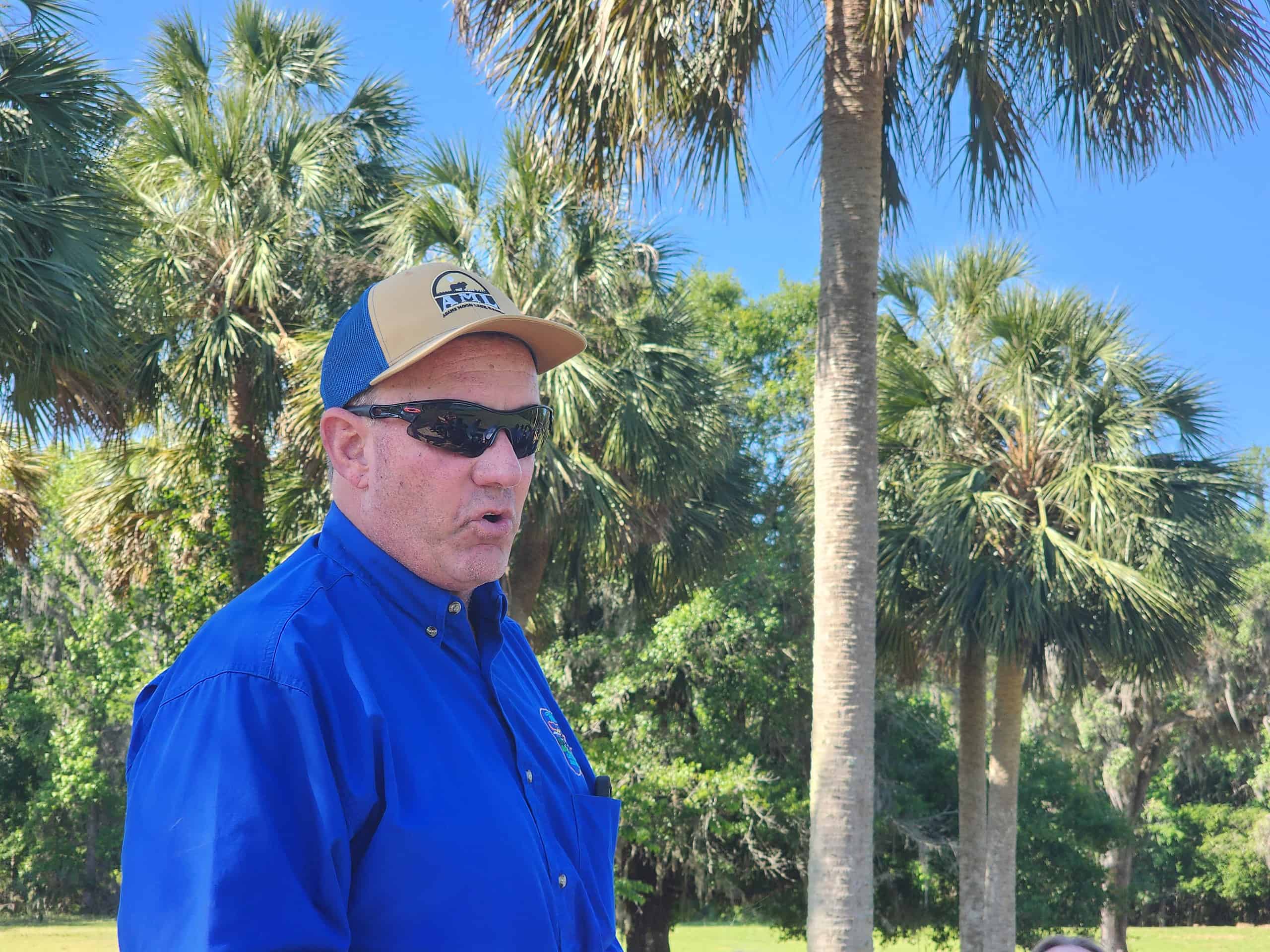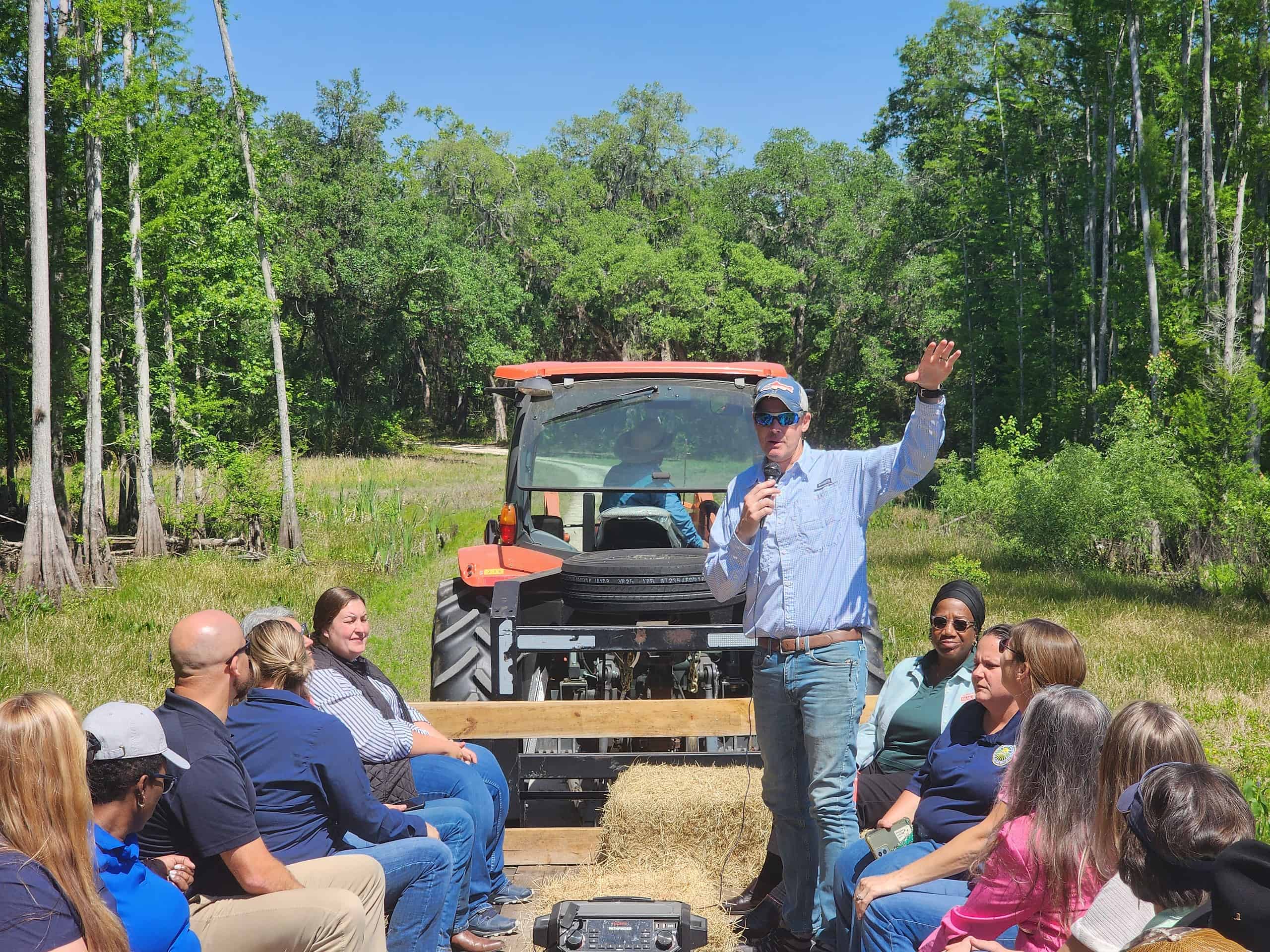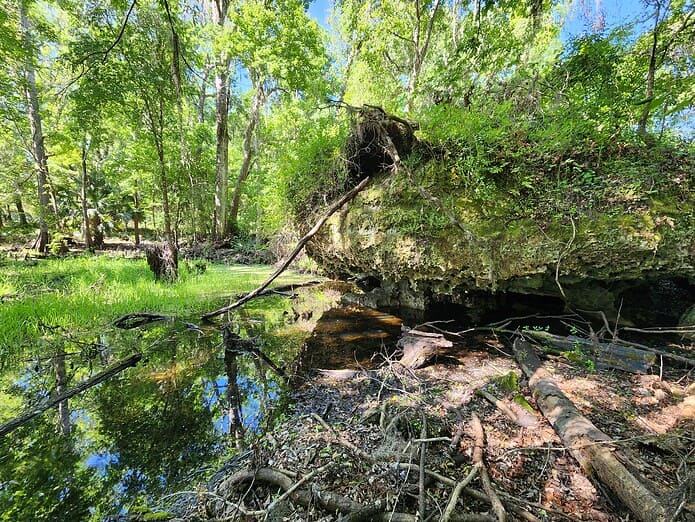CITRUS—On Friday, Scott Adams and Adams Moon Lake Ranch hosted representatives from the Florida Farm Bureau, the Department of Agriculture, and the University of Florida as well as other local leaders, for an agricultural tour around his farm located in Floral City.
The “Come to the Table AG Tour,” which began five years ago, resulted from the “burning desire that we needed to have something where we could have policymakers and elected officials get their feet on the ground so that they could come to the table (with local farmers and producers),” said the Florida Farm Bureau’s Valerie Ansell.
Events like these give agricultural leaders the opportunity to inform local officials about issues they are experiencing on their farms.
In the past, these tours have featured as many as seven farms, but that has been paired down over the years to only include one farm this time around. The other brainchild of the “AG Tour,” Tammy Hinkel of the Florida Department of Agriculture and Consumer Services (FDACS), noted that the difference was due to wanting “to give the awareness of how important agriculture is for these counties […]”

[Photo by Austyn Szempruch]
The day included several speakers, including a brief word from FDACS’ Ed Blommel about the Rural and Family Lands Protection Program. Beginning in 2001, the program was designed to preserve agricultural land and resources “through the acquisition of permanent agricultural land easements,” the FDACS website stated.
Blommel added that there are now 205,000 acres that fall under this banner, and 140,000 of these were acquired in the last two years under the leadership of Agriculture Commissioner Wilton Simpson.
Afterward, the group of community leaders was taken on a three-hour hay ride around Adams’ roughly 900-acre cattle ranch. His ranch often raises purebred Brahman cows, but this year they are focusing on raising “F1s,” which are a cross between a purebred Angus cow and a purebred Brahman.
The tour included the backstory of the land, a historic cypress tree, and the Pineola Fern Grotto Cave Complex.
Land History
Adams grew up on an adjacent piece of land and even worked for a time on the property years prior. After dropping out of high school two weeks before his sixteenth birthday, Adams took several agricultural jobs until he finally had the means to purchase the property from the Thomas family roughly 10 years ago. It was a close 3-2 vote among the owners, but they eventually sold the ranch to Adams because “they knew who we were,” Adams said.
Cabbage Hill, a site of interest on the property, is also known as Indian Hill due to the artifacts that have been found. Arrowheads and pottery found on this elevated location near the Withlacoochee River suggest an indigenous settlement once existed on the land.
Historic Cypress and State Trail
On Adams’ ranch, there is an exceptionally aged cypress tree, which SWFWMD’s Mark Fulkerson noted could be one thousand years old or more. A picture taken roughly 100 years prior seemed to support this theory as the tree was nearly the same size as it is now, despite the passage of a century. At a minimum, the old foliage is believed to be hundreds of years old.
Running along an old rail line within sight of the cypress is the Withlacoochee State Trail. An estimated 350,000 people bike the 47-mile-long rail trail that is for cyclists of all levels.
Pineola Fern Grotto Cave Complex
These caves, which are home to 14 species of fern, are tall enough to walk through and extend back one hundred yards. Several of these fern species are tropical in nature, which is rare for the conditions under which they are growing. These caves are also home to two identified species of bats. One of these is the tri-colored bat, which is labeled as an endangered species as of 2022.
Farms like Adams’ also make sure to follow best management practices, which include nutrient and irrigation management as well as water resource protection. This includes using buffers to reduce sediment and nutrient transportation to bodies of water, according to the FDACS website.
The agricultural tour offers a fantastic opportunity every year for local leaders to “come to the table” and learn more about farms under their jurisdiction and the hard-working individuals who provide so many of our daily goods.


